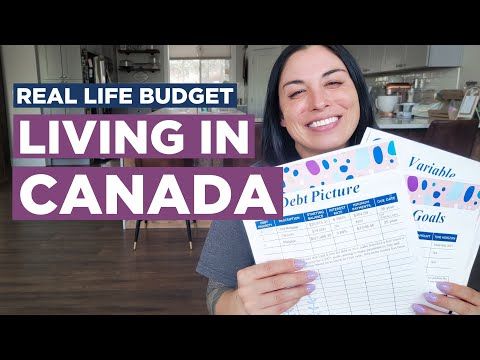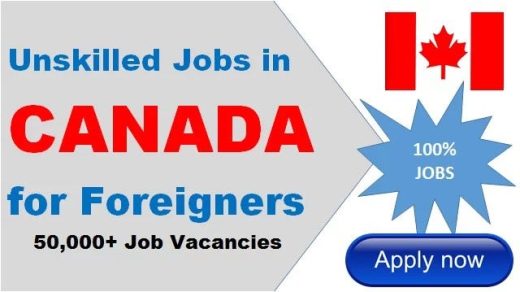As an immigrant, settling into a new country can be both exciting and overwhelming. And one of the most crucial aspects of starting afresh is managing your finances effectively.
In this blog post, we will guide you through budgeting for life in Canada as a new immigrant. From understanding the cost of living in different Canadian cities to creating a realistic budget plan and seeking financial assistance, we’ve got you covered. So grab a cup of coffee and let’s dive right into it!
Understanding the Cost of Living in Different Canadian Cities
Canada is a vast country with diverse cities, each offering its own unique lifestyle and cost of living. Understanding the cost of living in different Canadian cities is crucial when planning your budget as a new immigrant.
Cities like Vancouver and Toronto are known for their high costs of living. These cities offer vibrant cultural scenes, numerous job opportunities, and stunning landscapes, but they also come with higher expenses. Rent prices, transportation costs, and even groceries can be significantly higher compared to smaller cities.
On the other hand, smaller cities like Halifax or Quebec City may have lower overall costs of living. While they may not offer the same bustling city life as Vancouver or Toronto, they still boast their own charm and advantages. Housing costs tend to be more affordable in these areas, along with lower transportation expenses.
It’s important to consider your priorities when choosing where to settle down in Canada. Do you value career opportunities above all else? Are you willing to pay a premium for an urban lifestyle? Or would you prefer a slower pace and lower expenses?
Researching specific city data such as average rent prices, healthcare costs, utilities rates can provide valuable insights into the cost of living in different regions across Canada. Additionally
Essential Expenses to Consider in Your Budget
When you’re starting a new life in Canada, it’s important to have a clear understanding of the essential expenses that should be factored into your budget. These expenses will vary depending on your location and personal circumstances, but there are some common categories to consider.
Housing is likely to be one of your largest expenses. Rent or mortgage payments can take up a significant portion of your monthly income, so it’s crucial to research the housing market in your chosen city before making any decisions. Don’t forget to factor in additional costs such as utilities, insurance, and maintenance fees.
Transportation is another key expense for most people. Whether you plan on using public transit or owning a car, make sure to include transportation costs in your budget. This includes things like bus or subway fares, fuel costs, insurance premiums, and vehicle maintenance.
Food is an essential expense that often gets overlooked when creating a budget. Grocery bills can add up quickly if you’re not careful with your spending habits. Plan out meals ahead of time and shop smartly by comparing prices at different stores or taking advantage of sales and discounts.
Healthcare costs are something every newcomer should consider as well. While Canada has universal healthcare coverage for its residents, certain services may still require additional payments out-of-pocket or through private insurance plans. It’s important to understand what is covered under provincial healthcare plans and what isn’t.
Don’t forget about other necessary expenses such as utilities (electricity, water), internet/cable bills (if applicable), phone bills (both mobile and landline), childcare expenses (if applicable), education-related costs (tuition fees or student loans), and personal care items.
By considering these essential expenses while creating your budget as a new immigrant in Canada, you’ll be better prepared for managing your finances effectively from day one!
Creating a Realistic Budget Plan for New Immigrants
Moving to a new country can be both exciting and challenging, especially when it comes to managing your finances. As a new immigrant in Canada, one of the first steps towards financial stability is creating a realistic budget plan.
Start by identifying your sources of income. Whether you have secured employment or are still looking for job opportunities, understanding how much money you have coming in each month is crucial. This will help you determine what expenses you can afford and where you might need to cut back.
Next, list out your essential expenses that must be paid each month. These may include rent or mortgage payments, utilities, groceries, transportation costs, and healthcare insurance premiums. Be sure to allocate enough funds for these necessities before considering any discretionary spending.
Once you have accounted for your necessary expenses, evaluate your discretionary spending habits. Consider areas where you can cut back without sacrificing too much comfort or enjoyment. For example, eating out less frequently or finding cost-effective alternatives for entertainment activities can make a significant difference in your budget.
Don’t forget about saving! It’s important to set aside some money each month as savings for future goals or emergencies. Start small if necessary but make it a habit to save consistently.
Managing financial documents like bank statements and receipts is essential for tracking expenses accurately and staying organized with taxes later on. Take advantage of digital tools such as expense tracking apps that can simplify this process and provide insights into where your money goes.
As an immigrant in Canada, take advantage of various government programs designed specifically to assist newcomers financially. Explore resources such as settlement agencies that offer guidance on financial planning and access government benefits like the Registered Education Savings Plan (RESP) or the Canada Child Benefit (CCB).
Remember that adjusting your budget may become necessary over time as our circumstances change – whether it’s due to changes in income level or unexpected life events. Stay adaptable and flexible with your budgeting approach, making adjustments as needed to ensure your financial well-being.
Tips for Saving Money and Cutting Expenses
Saving money and cutting expenses is essential for new immigrants trying to establish themselves in Canada. Here are some practical tips to help you manage your finances more effectively:
1. Create a budget: Start by tracking your income and expenses to get an accurate picture of where your money is going. Then, set realistic savings goals and allocate a portion of your income towards them.
2. Cut back on unnecessary expenses: Take a close look at your spending habits and identify areas where you can make cuts. This could include reducing dining out, entertainment costs, or shopping for non-essential items.
3. Comparison shop: Before making any purchase, compare prices from different stores or online platforms to ensure you’re getting the best deal possible. Don’t be afraid to negotiate prices or ask for discounts when appropriate.
4. Embrace frugal living: Look for ways to save money in everyday activities such as cooking meals at home instead of eating out, using public transportation instead of owning a car, or finding free or low-cost recreational activities in your community.
5. Save on utilities: Be mindful of energy consumption by turning off lights when not in use, adjusting the thermostat temperature wisely, and unplugging appliances that are not being used regularly.
6. Plan ahead for big purchases: If you know there will be significant expenses coming up (such as furniture or electronics), start saving early so that you can pay cash instead of relying on credit cards or loans.
7. Prioritize debt repayment: If you have debts with high interest rates, focus on paying those off first before considering other financial goals. Consolidating debts may also be an option worth exploring if it helps lower interest rates and streamline payments.
8. Investigate cost-saving opportunities: Look into whether there are any government programs or subsidies available that can help reduce certain costs like childcare services rent accommodation etc .
By implementing these tips consistently over time, you’ll be able to save money, reduce expenses and build a solid financial foundation as you
Managing Finances as an Immigrant: Banking, Taxes, and Credit
When you first arrive in Canada as a new immigrant, one of the most important steps to take is setting up your banking accounts. Having a bank account will not only make it easier for you to receive your salary but also help you manage your day-to-day expenses. Look for banks that offer services specifically tailored to newcomers, such as low or no fee accounts.
Understanding the Canadian tax system is crucial when managing your finances. As an immigrant, you may be eligible for certain tax credits and deductions. It’s advisable to consult with a professional accountant who can guide you through the process and ensure that you’re taking advantage of all available benefits.
Establishing credit history in Canada is essential for future financial endeavors like getting loans or mortgages. Start by applying for a secured credit card or a small personal loan from your bank. Make sure to use these responsibly and pay off any debts on time to build good credit.
Keep track of all your financial documents such as pay stubs, rental agreements, bills, and receipts. These records are vital when filing taxes or applying for government programs and benefits down the line.
It’s also important to be aware of scams targeting newcomers who might have limited knowledge about the Canadian financial system. Never share personal information over phone calls or emails unless it’s from trusted sources like government agencies or reputable institutions.
By managing your finances effectively – opening a bank account early on, understanding taxes in Canada, building good credit history – you can set yourself up for long-term financial success in this beautiful country!
Adjusting Your Budget as Your Income Changes
One of the key aspects of budgeting for new immigrants in Canada is the ability to adjust your budget as your income changes. As you settle into your new life and career, it’s important to regularly reassess and adapt your budget to ensure that it aligns with your current financial situation.
When experiencing an increase in income, resist the temptation to immediately upgrade your lifestyle or spend frivolously. Instead, take a step back and consider how this additional money can be strategically allocated. You may choose to allocate more towards savings, pay off debt faster, or invest in long-term goals such as purchasing a home or furthering your education.
On the other hand, if you find yourself facing a decrease in income due to job loss or unforeseen circumstances, it becomes crucial to make adjustments quickly. Start by identifying areas where you can cut expenses – perhaps reducing discretionary spending on entertainment or dining out. Prioritize essential expenses such as rent/mortgage payments, utilities, groceries, and transportation costs while finding creative ways to save on these necessities.
Revisit any recurring subscriptions or memberships that are no longer necessary and consider negotiating lower rates for services such as internet or insurance providers. Additionally, take advantage of available resources like community support programs which may provide assistance during challenging times.
Remember that adjusting one’s budget is not a one-time event but rather an ongoing process throughout different stages of life. Regularly reviewing and refining your financial plan will help ensure that you remain financially stable even amidst changing circumstances.
By being proactive about adjusting our budgets when our income changes – whether increasing or decreasing – we are taking control of our finances and setting ourselves up for long-term success.
The Importance of Building an Emergency Fund
Life is full of unexpected twists and turns, and as a new immigrant in Canada, it’s crucial to be prepared for any financial challenges that may come your way. That’s where building an emergency fund becomes essential.
An emergency fund acts as a safety net, providing you with peace of mind and financial stability during unforeseen circumstances. Whether it’s a medical emergency, car repairs, or sudden job loss, having funds set aside can help you weather the storm without resorting to high-interest loans or credit card debt.
Start small but be consistent. Even if you can only save a small amount each month at first, every little bit counts. Set realistic goals and gradually increase your savings over time.
Consider automating your savings by setting up automatic transfers from your checking account into a separate emergency fund account. This will ensure that saving becomes a habit rather than something easily forgotten or pushed aside.
Remember that emergencies don’t wait for the “perfect” time; they can happen anytime! So prioritize building your emergency fund alongside other financial obligations like paying bills and saving for retirement.
Having an ample emergency fund not only provides immediate relief during tough times but also strengthens your overall financial foundation. It gives you the confidence to navigate uncertain situations without jeopardizing long-term goals such as buying a home or starting a business.
Don’t overlook the power of budgeting when it comes to building an emergency fund. By analyzing your spending habits and identifying areas where you can cut back on non-essential expenses, you’ll free up more money to contribute towards your rainy-day savings.
In addition to cutting expenses, consider finding ways to boost your income through side gigs or part-time jobs. Every extra dollar earned is another opportunity to grow your emergency fund faster while ensuring its resilience when needed most.
It’s important to remember that building an emergency fund takes time and discipline – Rome wasn’t built in a day! Stay focused, stay committed, and celebrate your progress along the way. Remember that every dollar
Seeking Financial Assistance and Resources for Newcomers
As a new immigrant in Canada, it’s important to know that there are various financial assistance programs and resources available to help you navigate your way through the Canadian financial landscape. These resources can provide valuable support and guidance as you adjust to your new life.
One of the first steps you can take is to reach out to settlement agencies or organizations specifically designed to assist newcomers. These organizations offer a range of services, including financial counseling, job placement assistance, language training, and more. They can help connect you with valuable resources tailored to your specific needs.
Additionally, many provinces in Canada have government-funded programs aimed at helping immigrants integrate into their communities successfully. These programs may offer grants or loans for education or starting a business, subsidies for housing or childcare expenses, and other forms of support.
It’s also worth exploring community-based initiatives such as local non-profit organizations that provide free or low-cost services like food banks, clothing closets, healthcare clinics, and legal aid clinics. These resources can be invaluable when finances are tight.
When it comes to finding employment opportunities as an immigrant in Canada, consider reaching out to employment centers that specialize in assisting newcomers with job search strategies. They often offer workshops on resume writing and interview preparation while connecting you with potential employers who value diversity and cultural understanding.
Lastly, don’t hesitate to explore online forums and social media groups where fellow immigrants share their experiences regarding financial challenges they’ve faced upon arrival in Canada. You’ll find advice on budgeting tips unique insights about navigating the Canadian banking system plus information about additional funding opportunities from individuals who have firsthand experience overcoming these obstacles themselves!
Remember: seeking financial assistance doesn’t mean failure! It means taking proactive steps towards securing stability during your transition into life here in Canada.









